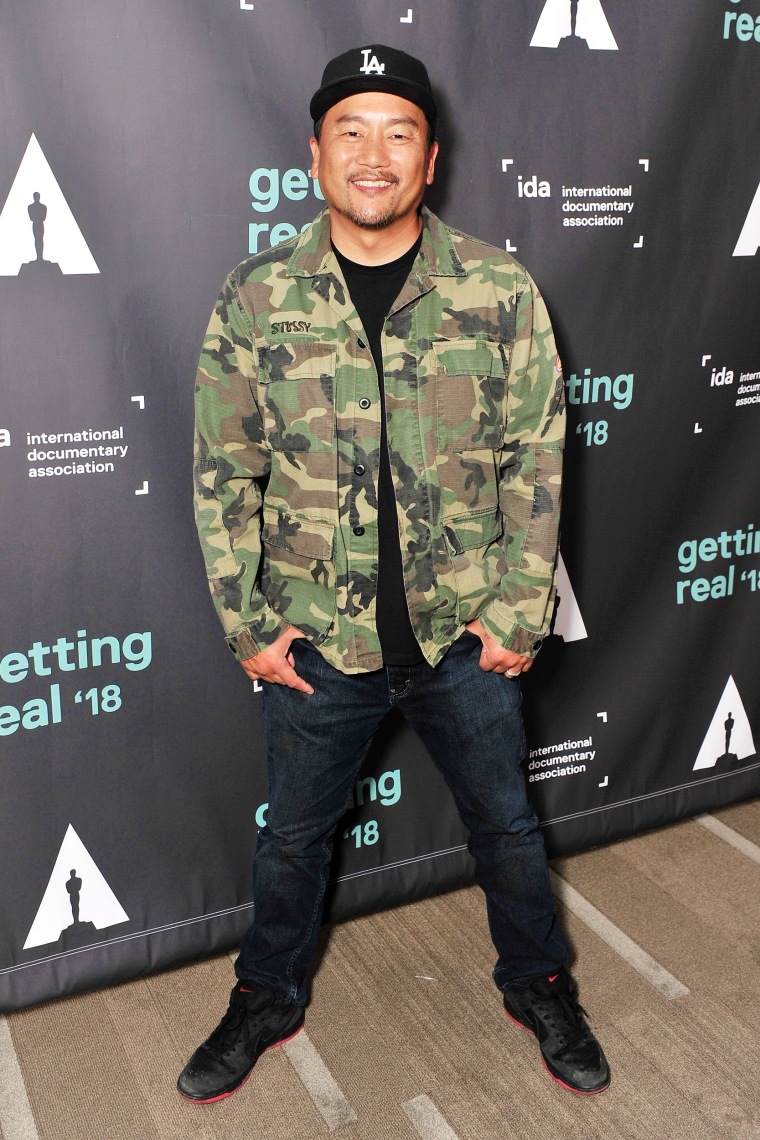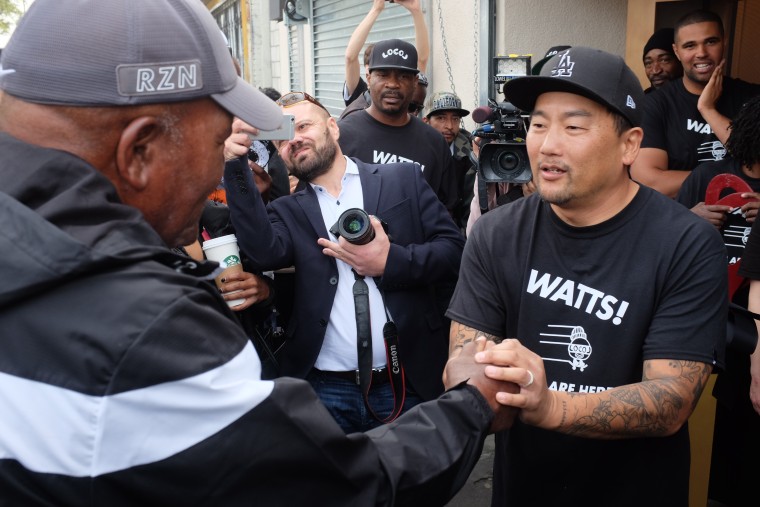LOS ANGELES — After launching food trucks, restaurants, and social justice efforts, chef Roy Choi is about to premiere a six-part series, "Broken Bread," that looks at the ways food can be an agent of change. The series debuts May 15 on PBS channel KCET in Southern California and will stream on Tastemade TV's streaming platform.
In the series co-produced by KCET and Tastemade, Choi, who kicked off the food truck trend with his Kogi BBQ truck and went on to found restaurants like Chego, A-Frame, and Pot, talks to people working to create positive change.

"Hopefully through the show you'll meet a lot of people who are out there every day trying to make a difference without any investors or big machine behind them, waking up and loading their car and putting love into the universe," Choi says.
Why do a show on food justice instead of cooking or travel? "They're my kindred spirits," Choi says of the people he interviews, which include Father Greg Boyle of Homeboy Industries and urban gardener Ron Finley. "I can't be with them every day on the ground. My contribution to the movement is to shine a light on them."
Each "Broken Bread" episode tackles issues facing society such as waste, immigration, and sustainability. The first installment looks at the power of cooking to help rehabilitate those on the margins of society. Other episodes investigate bringing healthy food options to communities that lack fresh food; the future of food using non-traditional protein sources and meat replacements; solutions to food waste; and cannabis culture, including an interview with Cheech Marin.
Choi, whose latest venture is Best Friend restaurant at Las Vegas' Park MGM, tried to take an entertaining approach to the serious subject matter, including recruiting Dan the Automator to contribute music. "We need people to see how important these topics are," he says. "We have to make these topics a part of pop culture and create more tidal waves of change. If we can't contribute to that progress, what's the result? More people on the street, more food waste. ... We try to move that needle a little bit and hope."
"Even if it just makes you think, the show will have done something," says Choi, who hopes viewers will also be inspired to be part of finding solutions.
"You'll see on the food waste episode that there are programs you can get involved with," Choi explains. "If you're a restaurant or organization, motels and hotels, just start there ― there are millions of pounds of produce and food wasted, and there are millions of people starving." The show's website will include suggestions for how to get involved.
In the final episode, Choi looks at the community of Watts and the "real" story of starting his restaurant Locol, a concept he conceived to help serve neglected neighborhoods. Though Locol has transitioned into a catering operation, he insists its work continues. "In the media it was really easy for everyone to say that Locol failed," Choi says. "But we've never left, we're continuing to work, continue to provide jobs, and eventually to have it run completely by the community. 'Broken Bread' is an extension of that."

Choi admits that it was crushing when one of the organizations he spotlighted, L.A. Kitchen, closed due to funding issues while "Broken Bread" was being filmed. "It devastated me," he said. The organization, which was founded to train restaurant workers and recycle excess food, represented exactly the sort of grassroots solution to poverty and injustice the show was meant to emphasize.
People tend to want the tougher topics to be "airbrushed out of their lives," Choi says, but he hopes the show can be "a moment people can think deeper about these things," like confronting the "glaring numbers of what it takes to eat one hamburger."
As far as why the show tackles cannabis culture, Choi wanted to address criminalization and gentrification alongside marijuana food pairings. "If you're going to gentrify weed, you have to look at those who are serving serious time for having a roach in their ashtray," he points out.
In advance of the show's airing, the premiere episode will screen on May 5 at the Wiltern as part of the Los Angeles Times' Food Bowl, with Choi moderating a panel. The series will also air on May 21 on Link TV, DirecTV, and Dish Network, and episodes will also be available on brokenbread.tv and on the free PBS app.
Follow NBC Asian America on Facebook, Twitter, Instagram and Tumblr.